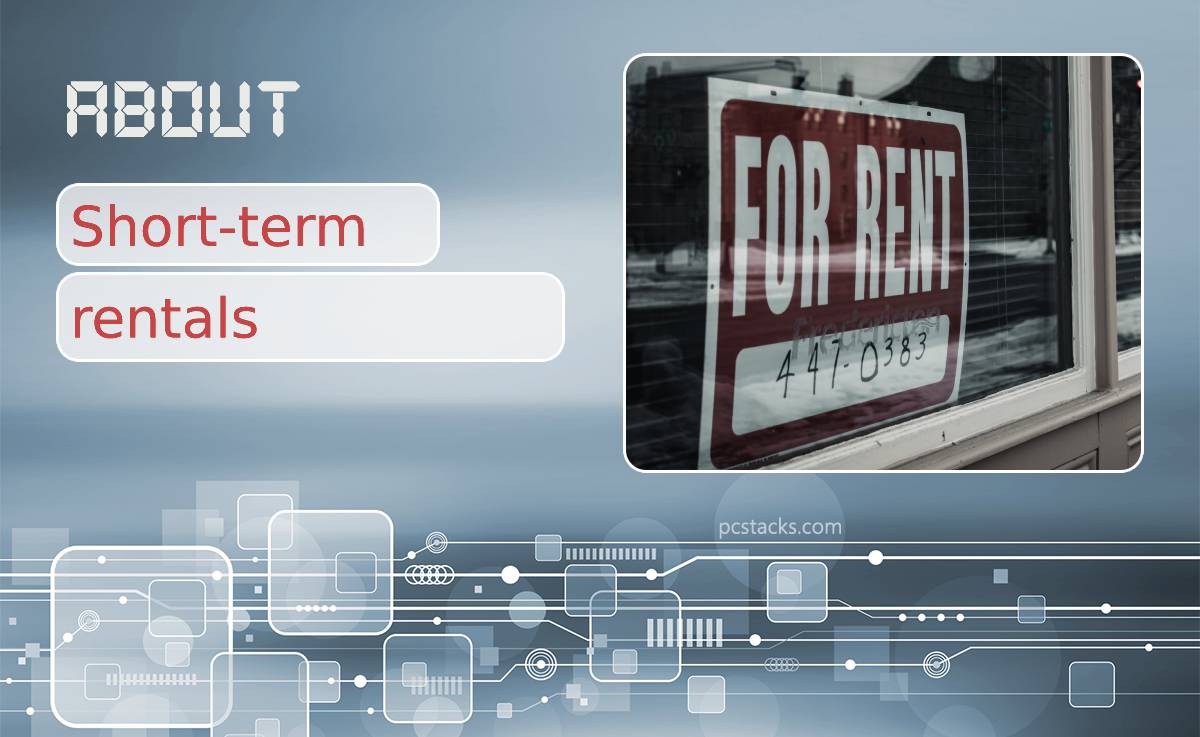As the sharing economy continues to grow, more people are looking for alternatives to traditional hotels when they travel. Short-term rentals (STRs) offer a more home-like experience and are often less expensive than a hotel room.
However, there are some important things that your clients need to know before they book an STR:
- Check local regulations: In many areas, STRs are not regulated in the same way as hotels. This means that there may be no minimum standards for safety or cleanliness. Check local regulations before booking an STR, and only book with reputable companies that follow all applicable laws.
- Be aware of extra fees: When renting an STR, your clients will likely be responsible for paying additional fees beyond the nightly rate. These include cleaning fees, linens and towels, damage deposits, and pet fees (if applicable). Be sure to factor these into the overall rental cost, so there are no surprises later.
- Read the reviews: Like hotels, it’s important to read reviews before booking an STR. Not all rental platforms require reviews from guests, so pay attention to those that do—it’s usually a good sign that the company is reputable and takes guest satisfaction seriously.
Short-term rentals can be a great alternative to traditional hotels for your clients looking for something different on their next trip.
Just be sure they are aware of local regulations around STRs, extra fees that may apply beyond the nightly rate, and what previous guests have said about their experience with the rental property before they book
Table of Contents
What Are Short-Term Rentals

Short-term rentals are rental properties leased for a short period, typically 30 days or less. These rentals can be found in popular tourist destinations and urban areas. Short-term rentals offer travelers an alternative to traditional hotel accommodations.
There are a few things to remember when considering a short-term rental:
- Check the local laws and regulations regarding short-term rentals.
- Be sure to read the lease agreement carefully before signing it.
- Make sure you are comfortable with the terms of the rental agreement.
If you’re looking for a place to stay in a popular tourist destination or urban area, consider renting a short-term rental property instead of a hotel. With careful planning and consideration, renting a short-term rental can be a great alternative to traditional hotel accommodations.
Why Do Companies Offer Short-Term Rentals
There are a few reasons why companies might offer short-term rentals. One reason is that it can be a more cost-effective option for travelers. Hotels can be expensive, especially in popular tourist destinations and urban areas. Short-term rentals can provide travelers with a more affordable option.
Another reason why companies offer short-term rentals is that they can be a more convenient option than hotels. Hotels can be booked up months in advance, but short-term rentals may have more availability. This can be especially helpful if you need to find a place to stay on short notice.
Lastly, short-term rentals can offer travelers a more unique and personal experience than staying in a hotel. When you rent a property, you often have access to amenities you wouldn’t have in a hotel room, like a kitchen and laundry facilities. You also usually get to choose your sleeping arrangements to pick the perfect setup for your needs.
How Do Short-Term Rentals Impact Customer Retention

Customer retention is an important metric for any business, and short-term rentals are no exception. For businesses that offer short-term rentals, customer retention can significantly impact the bottom line.
There are a few things to keep in mind regarding customer retention and short-term rentals. First, repeat customers are more likely to book again if they had a positive experience the first time around. This means that providing a good customer experience is key to retaining customers.
Second, word of mouth can be a powerful marketing tool. If customers have a positive experience with your short-term rental, they’re more likely to tell their friends about it. This can help you attract new customers and grow your business.
Finally, offering discounts or loyalty programs can also help you retain customers. If you offer discounts for repeat bookings or loyalty points that can be redeemed for free nights, you’ll incentivize customers to return to your short-term rental again and again.
What Are Some Alternatives to Short-Term Rentals

There are a few alternatives to short-term rentals. One option is to stay in a hotel. Hotels can be expensive, but they offer travelers amenities like room service and daily housekeeping.
Another alternative is to rent an apartment or house for a longer period. This can be more cost-effective than renting a short-term rental, but it may not be as convenient if you’re only staying for a few days or weeks.
Lastly, you could also stay with friends or family if they live in the area you’re visiting. This is usually the most affordable option, but it may not be possible if you travel to a new city or country.
Four Things Your Clients Need to Know About Short-Term Rentals
- What is a short-term rental? A short-term rental is a property rented out for a short period, usually 30 days or less. Short-term rentals are popular among travelers looking for an alternative to traditional hotel accommodations.
- Why do companies offer short-term rentals? There are a few reasons why companies might offer short-term rentals. One reason is that it can be a more cost-effective option for travelers. Hotels can be expensive, especially in popular tourist destinations and urban areas. Short-term rentals can provide travelers with a more affordable option.
- How do short-term rentals impact customer retention? Customer retention is an important metric for any business, and short-term rentals are no exception. For businesses that offer short-term rentals, customer retention can significantly impact the bottom line. There are a few things to keep in mind regarding customer retention and short-term rentals. First, repeat customers are more likely to book again if they had a positive experience the first time around. This means that providing a good customer experience is key to retaining customers. Second, word of mouth can be a powerful marketing tool. If customers have a positive experience with your short-term rental, they’re more likely to tell their friends about it
What Are Some of the Benefits of Short-Term Rentals

There are a few benefits of short-term rentals. One benefit is that they can be a more cost-effective option for travelers. Hotels can be expensive, especially in popular tourist destinations and urban areas. Short-term rentals can provide travelers with a more affordable option.
Another benefit of short-term rentals is that they offer more flexibility than traditional hotel accommodations. With a short-term rental, you can choose your check-in and check-out times and how long you want to stay. This can be helpful if you’re traveling on a tight schedule or need to make last-minute changes to your plans.
Lastly, short-term rentals often come with fewer restrictions than hotels. You’ll usually have access to the entire property during your stay, rather than just your room. This means you can prepare meals in the kitchen, work from home in the living room, and enjoy all the comforts of home while you’re away.
Conclusion
In conclusion, short-term rentals may not be the best way to retain customers. If you’re considering using a short-term rental for your next trip, you should keep a few things in mind. First, they may not be the most cost-effective option. Hotels can be expensive, but short-term rentals can offer travelers a more affordable option.
Second, customer retention is important for businesses that offer short-term rentals. Repeat customers are more likely to book again if they had a positive experience the first time around. This means that providing a good customer experience is key to retaining customers.




